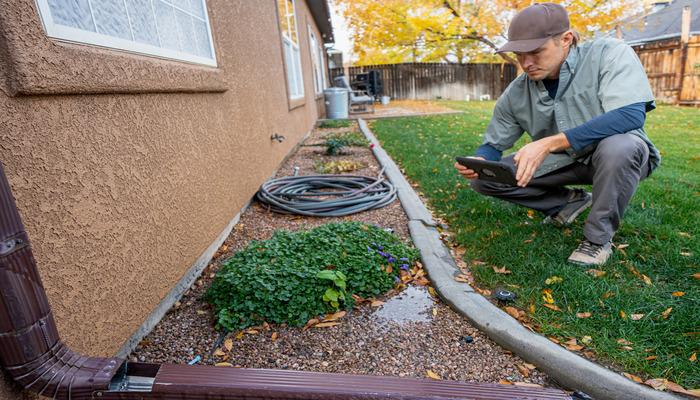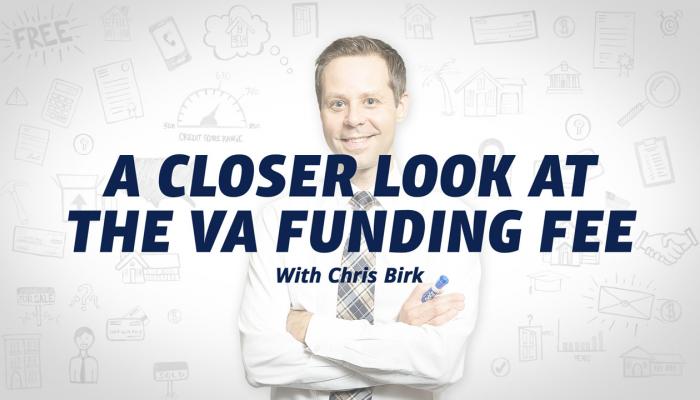Are you wondering how your VA appraiser will feel about exposed wires, a sparking fuse box or knob-and-tube wiring?
No need to worry, Veterans United is here to help. Let’s talk about the electrical requirements of the VA appraisal.
MPRs and Electrical Systems
The VA issues a list of Minimum Property Requirements (MPRs) to every VA appraiser. Appraisers must ensure that properties meet or exceed MPR standards to qualify for VA financing.
MPRs are fairly vague when it comes to electrical requirements. The VA simply states that “each unit must have electricity for lighting and for necessary equipment” and that mechanical systems “be safe to operate.”
So what does that mean?
Key Factors: Local Codes and Safety
The electrical portion of the VA appraisal comes down to two key factors: local building codes and safety. As long as the home’s electrical system is acceptable to the local building authority, it’s acceptable to the VA.
In rural spots or areas without building codes, the VA asks its appraisers to defer to the National Fire Protection Association’s Electrical Code Requirements.
The VA understands that appraisers are not skilled electricians, and that’s okay. VA appraisers are asked to evaluate a home’s electrical system as well as they can, with a special focus on safety issues.
So a smoking fuse or exposed wire will definitely cause a problem with a VA loan. Less obvious issues will probably prompt the appraiser to call for a professional electrical inspection.
VA Electrical Requirements
While VA appraisers use the minimum property requirements to assess a home’s electrical system, here are some key points they look for:
- Electricity may be shared among units as long as there are separate service shut-offs
- Connections from the main to the building line may be shared but only when those connections are protected by an easement and a maintenance agreement acceptable to VA
- Easy access for electrical maintenance and repairs
- Mechanical systems must be safe to operate and protected from various elements
Electrical Issues to Consider
Sometimes appraisers identify electrical issues that must be repaired before the loan can close. These issues are not necessarily unsafe at the time but could evolve into a bigger problem. For example, flickering lights could signify poor connection within the wiring.
Some other minor issues include dead outlets, frequently tripping breakers, short circuits and the overuse of extension cords. The VA appraiser may request a more thorough evaluation, such as a home inspection, to further assess the issues.
VA Electrical System FAQs
Are GFCI outlets required for a VA loan?
Ground Fault Circuit Interrupter (GFCI) outlets are required in certain areas of the home where the risk of electrical shock is greater. This includes the bathrooms, kitchens, garages and outdoor areas. GFCI outlets automatically cut off power if they detect an imbalance in the electrical current.
Does the VA allow knob-and-tube wiring?
Yes, you can get approved for a home with knob-and-tube wiring. The underwriting guidelines for all of the major mortgage agencies (Fannie Mae, Freddie Mac, FHA, VA, and USDA) all allow for knob-and-tube wiring as long as the system is deemed to be safe, functional, and typical for the area.
Will a fuse box pass a VA loan?
A fuse box itself won’t t automatically disqualify a property for a VA loan, but it may raise concerns during the VA appraisal process. The main issues will be related to safety, adequacy, and up-to-date compliance with electrical standards.
Fuse boxes are generally found in older homes and might be a sign of an outdated electrical system. However, if the local authority finds the use of fuse boxes acceptable, then the VA considers them acceptable as well.
Are appliances required on a VA loan?
In general, the VA doesn't require specific appliances to be present for a home to qualify for a VA loan. However, the VA appraisal process does have certain requirements related to safety, structural soundness and sanitation that could indirectly relate to appliances.
For example, the VA requires that the home must have "mechanical systems" that are "safe to operate, protected from destructive elements, have a reasonable future utility and are adequate for the property." This requirement can be interpreted to mean that essential systems like heating and cooling must be in place and functional.
Similarly, the VA stipulates that the home must have suitable space to install required appliances such as a stove and refrigerator. However, they do not necessarily require these appliances to be present at the time of appraisal.
Related Posts
-
 VA Appraisal RequirementsExplore everything a homebuyer needs to know about the VA appraisal, including the process, property requirements, pitfalls, termite inspections, water quality checks, appraisal fees, challenging a low appraisal and the differences between the VA appraisal and a home inspection.
VA Appraisal RequirementsExplore everything a homebuyer needs to know about the VA appraisal, including the process, property requirements, pitfalls, termite inspections, water quality checks, appraisal fees, challenging a low appraisal and the differences between the VA appraisal and a home inspection. -
 2024 VA Funding Fee: Complete Explainer with Charts and ExemptionsThe VA funding fee is a governmental fee required for many VA borrowers. However, some Veterans are exempt, and the fee varies by VA loan usage and other factors. Here we explore the ins and outs of the VA funding fee, current charts, who's exempt and a handful of unique scenarios.
2024 VA Funding Fee: Complete Explainer with Charts and ExemptionsThe VA funding fee is a governmental fee required for many VA borrowers. However, some Veterans are exempt, and the fee varies by VA loan usage and other factors. Here we explore the ins and outs of the VA funding fee, current charts, who's exempt and a handful of unique scenarios.


